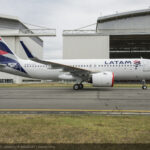The UK Space Agency has announced £6.6 million funding for a range of international science partnerships and STEM education projects at the opening of this year’s Space-Comm Expo in Farnborough – one of the UK’s largest space events.
The new Science and Exploration Bilateral Programme is designed to support science collaborations with international institutions that will progress space research and problem-solving around the world.
The new Space to Learn scheme will boost initiatives dedicated to inspiring young people about space and improve access to STEM careers and learning opportunities all over the country.
Space-Comm Expo
Dr Paul Bate, Chief Executive of the UK Space Agency, said: “Successful international partnerships not only support the immediate mission or research area; they help us develop long-term research relationships address the critical challenges we face on Earth and in space.
“This new bilateral funding multiplies up our agency’s impact by bringing in international investment. This helps to galvanise global innovation, drive up investment in the UK, deliver new missions and capabilities, and to champion the power of space to improve lives and understand the Universe.
“As the UK’s space ambitions increase, investing in STEM programmes is equally critical. We want to make sure that every young person across all communities can be inspired through space, imagining new possibilities and innovations to which they can contribute, drawing on their growing STEM knowledge, and having fun learning along the way.”
UK Space Agency funding
The first nine projects selected for funding from the bilateral programme will link UK organisations with the US, Japan, Canada and Europe, using £2.3 million UK Space Agency funding to develop collaborative proposals for new space science and exploration missions.
One project will see Imperial College London team with the University of New Hampshire to design magnetometers for NASA’s HelioSwarm mission, which will improve our understanding of space weather by using a “swarm” of nine small spacecraft to measure solar winds.
There is also on work from the University of Cambridge on CosmoCube, a NASA-led radio-cosmology mission that will explore the so-called Dark Ages of the Universe, and a collaboration between Royal Holloway and Indian Space Research to develop crucial radars for the Shukrayaan mission to Venus, due in 2026.
Meanwhile, the Space to Learn programme will channel £4.3 million UK Space Agency funding into four major educational projects.
These include the National Space Academy’s series of 1,000 specialised masterclasses, engaging more than 40,000 students with science career opportunities; the Jon Egging Trust’s Blue Skies initiative delivering 28,000 hours of space-related education resources to students, and the Association for Science and Discovery Centre’s Our World From Space programme, exploring the relevance of UK space science for the future health and sustainability of our home planet.
The funding will also help the European Space Education and Resource Office run its Space Inspirations scheme, which sees regional volunteers from the space sector work with more than one million children across the UK, creating learning experiences that help young people to engage with the space sector in a way that they can really connect with.
Subscribe to the FINN weekly newsletter

